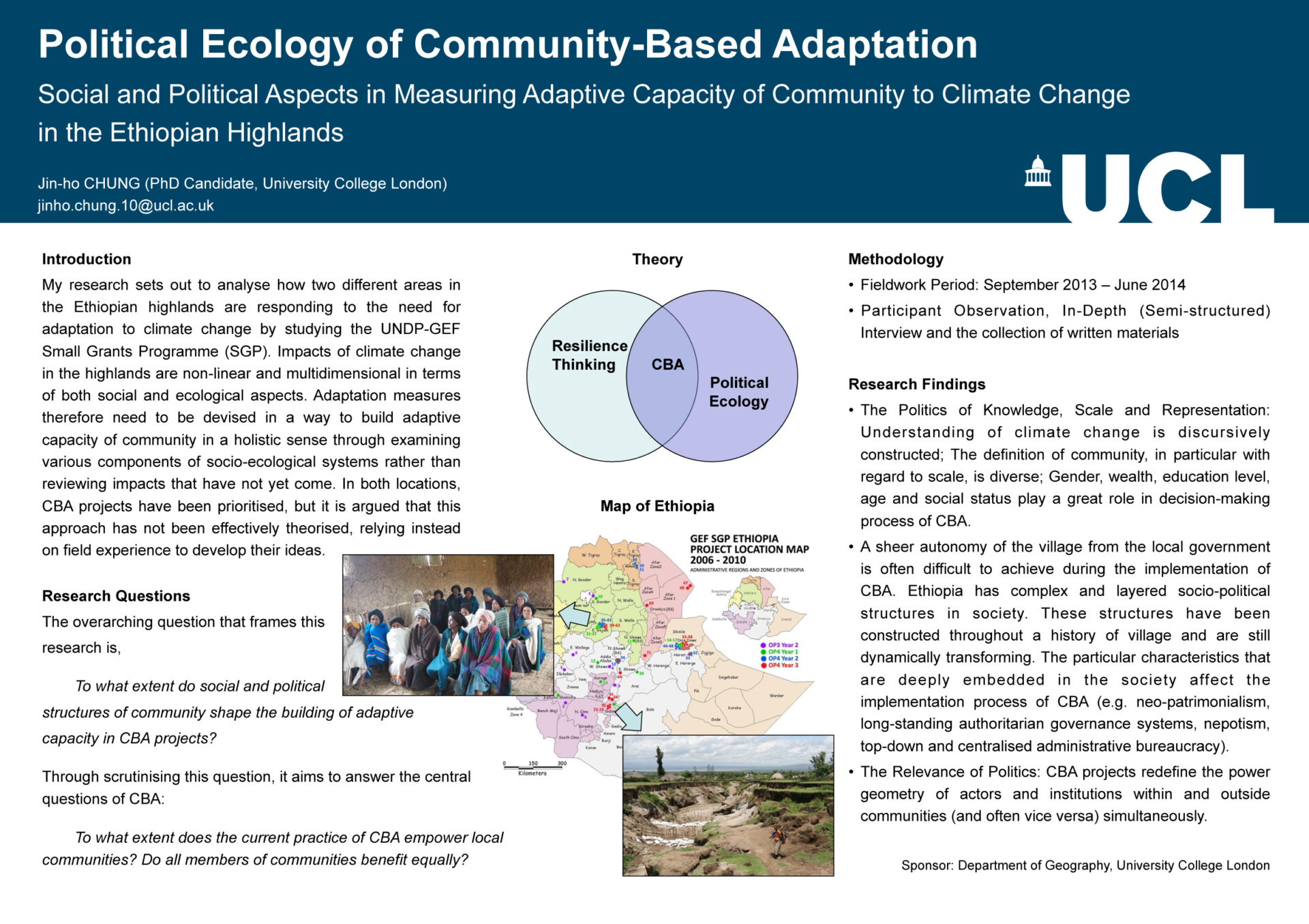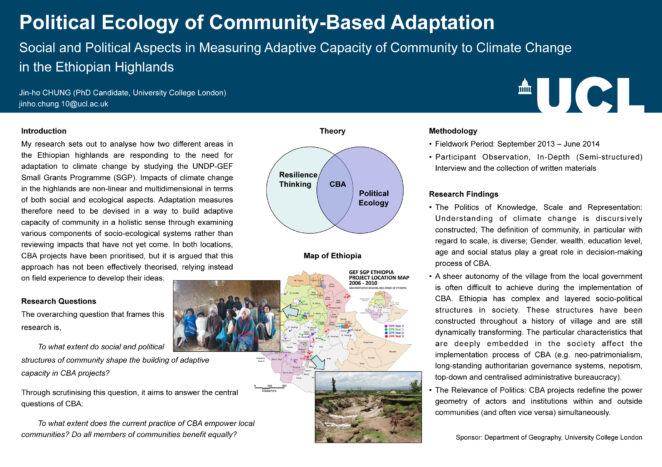Social and Political Aspects in Measuring Adaptive Capacity of Community to Climate Change in the Ethiopian Highlands


Click to enlarge.
The 9th International Conference on Community-Based Adaptation (CBA9) took place in Nairobi, Kenya, from April 24-30 2015. The CBA series of conferences focus on the latest developments in community-based adaptation to climate change. The theme of this year’s event was “Measuring and enhancing effective adaptation”, and all the posters presented at the conference were summaries of projects related to the conference theme. This poster is one of the posters featured at the conference. For more information about CBA9, visit: www.cba9.org. If you want to learn more about community based adaptation, please visit the GICBA platform on weADAPT.
Introduction
This poster features research analysing how two different areas in the Ethiopian highlands are responding to the need for adaptation to climate change by studying the UNDP-GEF Small Grants Programme (SGP). Impacts of climate change in the highlands are non-linear and multidimensional in terms of both social and ecological aspects. Adaptation measures therefore need to be devised in a way to build adaptive capacity of community in a holistic sense through examining various components of socio-ecological systems rather than reviewing impacts that have not yet come. In both locations, CBA projects have been prioritised, but it is argued that this approach has not been effectively theorised, relying instead on field experience to develop their ideas.
Research Questions
To what extent do social and political structures of community shape the building of adaptive capacity in CBA projects? To what extent does the current practice of CBA empower local communities? Do all members of communities benefit equally?Research Findings
The Politics of Knowledge, Scale and Representation: Understanding of climate change is discursively constructed; The definition of community, in particular with regard to scale, is diverse; Gender, wealth, education level, age and social status play a great role in decision-making process of CBA.
A sheer autonomy of the village from the local government is often difficult to achieve during the implementation of CBA. Ethiopia has complex and layered socio-political structures in society. These structures have been constructed throughout a history of village and are still dynamically transforming. The particular characteristics that are deeply embedded in the society affect the implementation process of CBA (e.g. neo-patrimonialism, long-standing authoritarian governance systems, nepotism, top-down and centralised administrative bureaucracy).
The Relevance of Politics: CBA projects redefine the power geometry of actors and institutions within and outside communities (and often vice versa) simultaneously.
Contact:
This poster was produced by Jin-ho Chung, PhD Candidate at University College London (UCL).
(0) Comments
There is no content